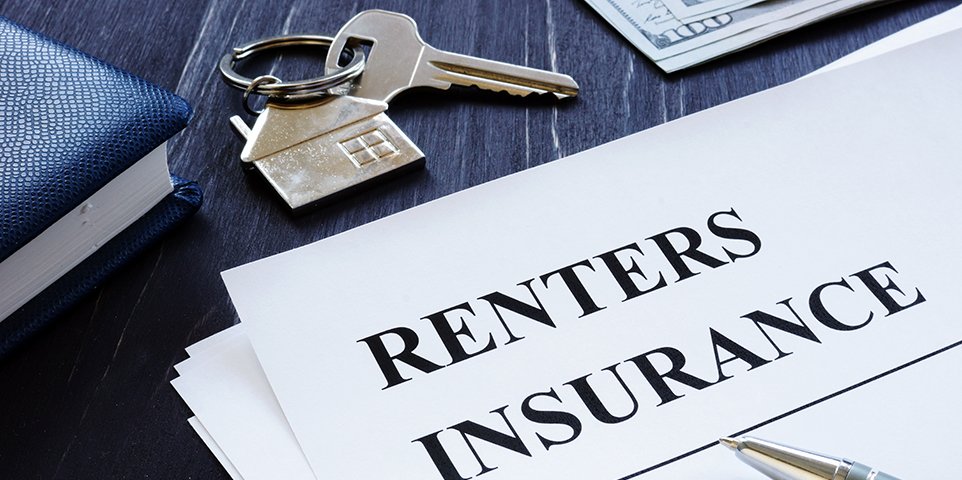Renting a home or apartment can provide a sense of freedom and flexibility, but it also comes with its own set of risks. While your landlord’s insurance covers the building itself, it doesn’t protect your personal belongings or liability. That’s where renters insurance comes in.
But what exactly does renters insurance cover? What kind of protection does it provide, and what are you actually paying for? In this post, we’ll break down the most common policies and coverage options to help you understand how renters insurance works.
1. Personal Property Coverage
One of the primary reasons people purchase renters insurance is to protect their personal property. This coverage helps you replace or repair your belongings if they’re damaged, lost, or stolen due to covered events. Covered events typically include things like:
- Fire or smoke damage
- Theft or burglary
- Vandalism
- Windstorms and hail
- Water damage (from plumbing or sprinkler systems, but not from flooding)
- Falling objects or a tree branch damaging your things
Personal property coverage can include a wide range of items, including:
- Furniture (couches, tables, chairs)
- Electronics (TVs, laptops, phones)
- Clothing and accessories
- Kitchen appliances
- Jewelry (up to a limit, depending on your policy)
- Artwork and collectibles
Keep in mind that high-value items (like expensive jewelry, fine art, or electronics) may have limited coverage under a standard renters insurance policy. You can usually schedule or add extra coverage for these valuable items if needed.
2. Liability Coverage
Renters insurance also provides liability coverage, which protects you if someone is injured while on your rental property and you are found to be at fault. It helps cover medical bills, legal fees, and even court costs if you’re sued. This is particularly important if you entertain guests at home, have pets, or if accidents happen.
For example:
- A guest trips and falls on your stairs and needs medical treatment.
- Your dog bites a visitor.
- You accidentally cause damage to a neighbor’s property (e.g., flooding their apartment by leaving a sink running).
Liability coverage can help pay for:
- Medical expenses for injured parties (even if they don’t sue you)
- Legal fees if you are sued
- Settlements or damages if a court finds you responsible for the injury or damage
This coverage can range from $100,000 to $500,000 or more, depending on your policy. It’s always a good idea to review your coverage limits to ensure they meet your needs.
3. Additional Living Expenses (ALE) Coverage
If your rental unit becomes uninhabitable due to a covered event—like a fire, flood, or severe storm—Additional Living Expenses (ALE) coverage helps you pay for temporary living arrangements while your place is being repaired.
ALE can cover things like:
- Hotel stays or temporary rentals
- Restaurant meals if you can’t cook at home
- Laundry or storage costs while your home is being repaired
This coverage is essential for renters who don’t have the financial cushion to cover extra living costs in the event of a disaster. ALE coverage is typically available up to a specified dollar limit and time frame, so be sure to check your policy to see how much coverage you have.
4. Medical Payments Coverage
While liability coverage helps cover medical costs if you’re found at fault for an injury, medical payments coverage pays for minor injuries that happen on your property, regardless of fault. For instance, if a guest injures themselves at your place—like spraining an ankle or cutting themselves in the kitchen—medical payments coverage can help pay for their immediate treatment without the need for a lawsuit.
Medical payments coverage typically applies to guests and visitors but not to household members. If you’re the one injured, your health insurance would cover the costs instead.
5. Loss of Use Coverage
If you have to temporarily move out of your rental due to damage caused by a covered event, Loss of Use coverage can help replace your lost income or help you manage additional living expenses. This can be especially helpful for those who rely on rental income (if you rent out part of your home, for example) or for those who need financial assistance while they wait for repairs.
Loss of Use typically covers:
- Rental income loss if your property can’t be rented out due to damage.
- Temporary relocation costs, such as hotel bills or renting an apartment.
What Does Renters Insurance Not Cover?
While renters insurance provides valuable protection, it doesn’t cover everything. Some of the common exclusions include:
- Floods: Renters insurance does not cover damages from floods. If you live in a flood-prone area, you may need to purchase separate flood insurance.
- Earthquakes: Like floods, earthquake damage is not covered by standard renters insurance. You may need an add-on policy for this coverage.
- Roommates’ belongings: If your roommate doesn’t have their own renters insurance, their belongings won’t be covered under your policy.
- Negligence or intentional damage: If damage occurs due to negligence (e.g., leaving a stove on and starting a fire) or intentional actions (like vandalism), it won’t be covered by renters insurance.
- High-value items: As mentioned, some high-value items may have limited coverage under a basic policy, so you might need to purchase additional riders or scheduled personal property coverage for these items.
How Much Renters Insurance Do You Need?
The amount of renters insurance you need will depend on the value of your belongings and how much protection you want for your liability and other expenses. As a general guideline:
- Personal Property Coverage: Calculate the replacement value of your belongings. You can use an online calculator or make a list of your items to estimate their worth.
- Liability Coverage: While $100,000 of liability coverage is often enough, you may want more depending on your assets and risk exposure.
- ALE Coverage: Make sure your policy provides enough funds to cover temporary living expenses for several months if necessary.
Conclusion
Renters insurance is an affordable way to protect your personal property, cover liability, and get assistance if your home becomes uninhabitable due to a covered event. By understanding what renters insurance covers, you can choose the right policy for your needs and have peace of mind knowing you’re protected from unexpected losses.
Remember to review your policy periodically to ensure your coverage keeps pace with your needs and the value of your possessions. Don’t hesitate to reach out to an insurance agent for personalized advice on selecting the best renters insurance for your lifestyle.
















































